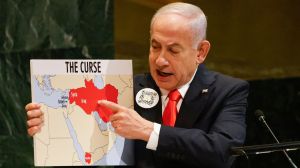Jagmohan rules out steep hike in telephone tariffs
NEW DELHI, FEB 10: Communications Minister Jagmohan today ruled out any steep hikes in telephone tariffs currently under the consideratio...

NEW DELHI, FEB 10: Communications Minister Jagmohan today ruled out any steep hikes in telephone tariffs currently under the consideration of the Telecom Regulatory Authority of India (TRAI). The average household can heave a sigh of relief with Jagmohan’s assurance stating “any increases that have to be made should be gradual for a painless absorption.”
“In a country where onion price increases in some pockets can cause such an outcry, what will the people say if telephone rates are hiked substantially across the board,” says Jagmohan in an exclusive interview to The Indian Express.
Jagmohan said that an interaction was underway with the TRAI to discuss the exact quantum of increases because “any hikes in rates, even if the TRAI does so, will be perceived as hikes affected by the government, and we will be at the receiving end of public ire and abuses,” says Jagmohan explaining the government’s position.
Under the TRAI Act of 1997, the duty of notifying tariffs was given to the TRAI. TheTRAI brought out a consultation paper on tariffs last October which was up for public debate. Since then the TRAI has been meeting Members of Parliament to crystalise their tariff policy.
The TRAI, in their tariff proposals had originally indicated price increases of almost 60 per cent in telephone rentals (up to Rs 620 from the existing Rs 380 for a bimonthly bill) in urban metros, reducing free calls from 150 to 120 and counting one call every three minutes of a local call instead of the existing five minutes.
Jagmohan said that in any case, the models used by the TRAI to justify the hikes in local call rates and reduction in STD rates were based on assumptions which may be difficult to translate to actual practice. “The TRAI says that if STD rates are slashed, calls will increase and keep the revenues of the Department of Telecommunications constant, which is like saying that if tax rates are reduced collections will increase which has not really happened,” says Jagmohan. He also says that lack ofdata in this regard may render some of the TRAI models ineffective.
While refusing to divulge any details about the exact quantum of increases, it was evident that any increases in rentals and tariffs beyond 15 to 20 per cent will not find support in the government, which in any case has rights under Section 25 of the TRAI Act of 1997 to quash the TRAI’s order on tariffs.







- 01
- 02
- 03
- 04
- 05
























